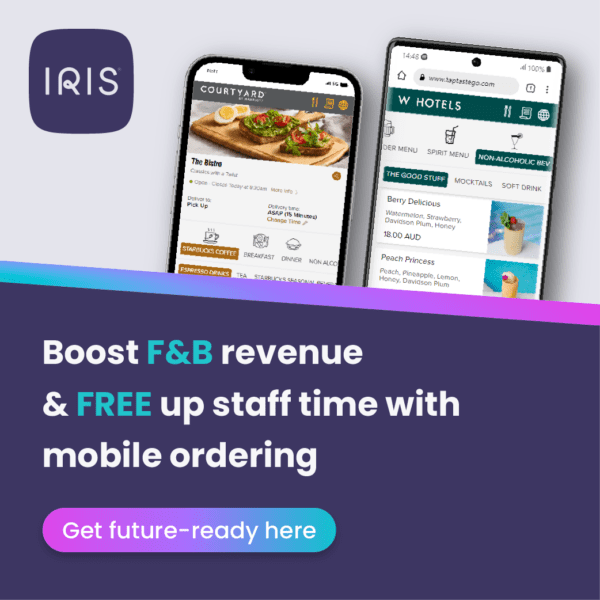 Experience is the product! In today’s hospitality industry, the ability to deliver excellent customer experiences is the only true path to success.
Experience is the product! In today’s hospitality industry, the ability to deliver excellent customer experiences is the only true path to success.
Hotels have been “obsessed with the customer,” well before big brands like Amazon, Google, and Uber turned it into a modern business requirement. They know the value of going above-and-beyond to ensure that travelers have all of the comforts of home; think plush towels, soft sheets, and anytime access to the Forensic Files on basic cable.
If you look at the modern traveler–be it the digital nomad freelancing from a new country each week, the traveling salesperson, or even the leisurely vacationer, they’re arriving with a whole bag full of wireless devices. From smartphones and e-readers to laptops, headphones, and wearables, there’s a lot to power up.
Between the costs saving potential and new revenue streams, hotel owners quick to embrace change stand to see some serious benefits. While hospitality customers have an evolving definition of what their ideal experience should look like, across the board, guests want to stay connected.
In-room amenities
A 2018 report from Cornell University School of Hotel Administration found that the most used hotel room amenities aren’t especially high-tech; we’re talking closets, irons, hairdryers, toiletries, and TV–you know, the basics.
That said, OpenKey’s Guest Expectations for Hotel Tech in 2019 reported that 98% of guests expect high-speed wifi access, 88% of guests expect charging ports, and 54% expect mobile keyless entry. They also found that 68% of guests expect their rooms to have smart TVs, 62% expect smart thermostats, and 53% expect smart lighting.
Though the report didn’t explicitly say so, guests also expect the devices in their rooms always to work. For instance, if a guest can’t open their door lock or turn on the TV, that’s a frustrating experience that can result in a bad review.
Dead batteries are a common failure for devices such a door lock or a remote control. Making sure that battery-operated devices always have power is an important step in meeting customer expectations. But how can a hotel ensure that batteries don’t run out without having staff constantly check them?
Hotel cafes, bars, & pools: common spaces need power, too
In a 2018 survey, we asked 1042 US adults about their relationship to battery anxiety. 68% reported feeling some level of battery anxiety during the average day, and 61% said they regularly charge their phone outside the home.
When people stay in a hotel, they’re away from their daily routine, making it difficult to find reliable access to working outlets. It’s also worth mentioning that about 43% of travelers book hotel stays during the workweek, meaning a sizable share of guests are traveling for business at any given time.
When you’re in a new city and need to prepare for a presentation or finish writing up a report, it’s stressful trying to figure out where to set up shop, while managing that last 10% of battery power.
Guests expect to be able to charge their devices pretty much anywhere. This means they don’t need to stay in their room, waiting for their phone to charge up so they can move on with their day. Instead, guests would like to check out the pool, grab a drink, or eat lunch without having to worry about dead batteries.
Outside of the hotel suite, offering the ability to charge encourages guests and other customers to eat at the hotel, patronize the bar, and order a coffee, rather than seeking out a second location that provides access to power.
There are rarely enough charging opportunities for every person and their devices if we continue to rely on outlets. Guest can’t always be next to an outlet, as wall seats tend to go fast.
Charging pads don’t offer much of an improvement. While they open up a few more seating options, they don’t offer much in terms of mobility.
A new technology, long-range wireless charging, brings a new option. It allows guests to move around. They can visit the restroom, grab a refreshment, and check out the pool, all while charging, Long-range wireless charging sends energy over the air from a plugged-in transmitter and this energy is then converted back into electricity by a receiver on the charged device. There are various long-range charging technologies – such as RF and ultrasound – and a very promising alternative is using infrared light that can safely deliver significant amounts of energy over long distances.
Moving from charging pads to long-range wireless charging is one way hospitality companies can improve the guest experience.
Wireless charging brings big data opportunities
By now, we’ve established the need for charging in two scenarios; both in the room and in the common areas. We’ve also determined that outlets aren’t enough; and soon, guests will come to expect something better than cords, outlets, and pads.
It’s no secret that many hotels and resorts are already leveraging data sourced from online review sites, social media, and website metrics to deliver customized solutions and improve the guest experience on the whole.
Long-range wireless charging presents another avenue for collecting insights that shape the guest experience. Much like the wifi at the airport or your local Starbucks, hotels can set up wireless charging that requires guests to sign in for access.
Charging solutions allow companies to learn more about guest behavior on-premises and accommodate their needs. For example hotel operators might:
- Learn how people use common spaces and make improvements to the space
- Review the demographics of people visiting the hotel bar or restaurant–are there a lot of non-guests stopping in to eat or grab a drink?
- Promote special offers, personalized by customer segment.
- Help locate the guests, for instance, so that a drink can be delivered poolside.
Long-range wireless charging represents the game-changing solution consumers are hoping for, something they’ll likely hand over their email address to access.
From cost-savings to operational efficiency: long-range charging benefits go both ways
Given that guests increasingly expect smarter amenities, both in-room and in common areas, hospitality brands are increasingly looking toward IoT solutions like smart thermostats and lighting solutions that allow customers to tailor their in-room experience.
However, it’s worth noting that the benefit works both ways. Here are just a few of the many benefits long-range charging offers hotel operators:
- Reduces waste. Smart devices regulate temperatures and light when rooms are unoccupied. Electronic keycards that can be sent to guests’ phones eliminate the need for plastic keycards, while also offering hotel staff real-time data about the operating status of devices.
- Keeps restroom batteries charged. Customers might never think about this until it happens, but it’s frustrating (and unsanitary) when dead batteries prevent soap from dispensing, a touchless faucet from operating or a toilet to flush.
- Takes care of routine battery changes. There are also door locks, remote controls, night lights. The smoke detector and its clunky nine-volts. And even when we’re talking rechargeable batteries, someone still needs to plug them in; or else, they’ll be hearing from guests.
- Ensures safety equipment runs 24/7. Long-range wireless power also makes it easy to ensure essentials like security cameras, exit signs, and carbon monoxide detectors, are always on, because they no longer depend on electrical wiring.
With long-range wireless charging, batteries never need to be replaced. This cuts costs by eliminating the need to repurchase batteries and reduces the number of maintenance checks and urgent service calls. And, yeah, it’s also better for the planet.
Airbnb & rentals
Finally, long-range wireless charging stands to benefit the hospitality sector outside of the traditional hotel suite. Airbnb hosts, too, can benefit from long-range charging that allows smart devices, remotes, and safety-focused devices like smoke detectors to stay powered up long-term.
Another key benefit to Airbnb hosts is smart locks. Property owners often deal with a rotating cast of guests, managing the flow remotely. Smart door locks allow them to change the code after every guest checks out, provided the device is continually connected to power.
Because replacing the batteries isn’t always an option for far-flung hosts, wireless charging presents a solution–ensuring the right guests can access the home, while keeping bad actors out.
Wrapping up
Not long ago, charging guests for WiFi access was commonplace. Today, not so much. A hotel that doesn’t offer high-speed internet is leaving money on the table. As mobile continues to grow, convenient, continuous charging will follow suit.
For hospitality brands, whether they’re luxury hotel chains, freeway-side economy suites, or the solo Airbnb host, long-range wireless charging is more than a convenience for guests, it’s both a cost-effective operational solution and an opportunity to collect powerful insights.
To get started, survey the battery-operated devices in your property. Determine how much time, effort and money is spent or lost on replacing them. Imagine the cost-savings and service improvement you would achieve if batteries were no longer an issue and consider how you would benefit if your guests can charge practically anywhere.
What if guests weren’t confined to cords and charging pads? How might their experience, and by extension, your reputation improve as a result?



















